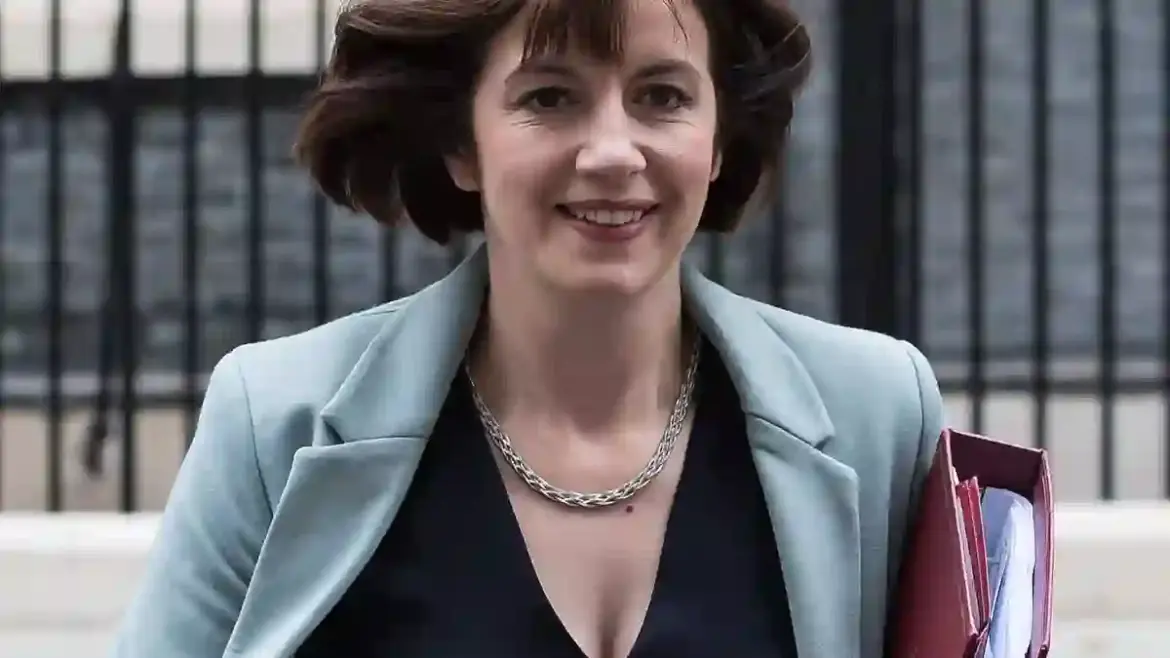Labour’s leadership drama has taken another twist as the contest to replace Angela Rayner as deputy leader officially gets underway.
With multiple senior figures stepping forward, the fight is shaping up to be one of the most closely watched political battles of the season.
Bridget Phillipson Makes Her Move
Education Secretary Bridget Phillipson confirmed that she is running, positioning herself as the candidate who could “unite our great party.”
Her decision effectively makes her the Downing Street-backed choice for the role.
In her pitch, Phillipson leaned heavily on her personal story—growing up in a single-parent household in the North East and working her way up to Cabinet level.
“I’ve taken on powerful vested interests in education and never backed down,” she said, promising to bring the same determination to this leadership fight.
She also warned about the threat posed by Nigel Farage’s Reform Party, stressing her track record of beating him in the North East while sticking to Labour’s values of fairness and social justice.
A Clash With Familiar Faces
But Phillipson won’t have an easy path. Her candidacy sets her on course for a possible head-to-head with Lucy Powell, the former Commons Leader recently sacked by Keir Starmer.
Powell has already secured high-profile backing from Greater Manchester mayor Andy Burnham, who praised her and argued that Labour needs “a northern woman” in the role—preferably someone outside the government.
Another heavyweight, Emily Thornberry, has also joined the race.
She made it clear she won’t simply “nod along” with Starmer, suggesting she plans to offer a more independent voice within the party.
Support and Strategy Behind the Scenes
The timing of Phillipson’s announcement is risky.
As a sitting Cabinet minister, losing to a backbencher could be seen as a blow.
Interestingly, she was stripped of part of her skills brief in last week’s reshuffle, which some speculate was done to free her up for this campaign.
Burnham, meanwhile, used his media appearances to criticise how MPs have been treated under Starmer’s leadership, calling for a culture where backbenchers can speak out without fear of losing the whip.
“We need to listen to our MPs more,” he insisted, pointing to issues like winter fuel support and disability benefits where MPs were proven right.
Pressure for a Northern Woman Candidate
Health Secretary Wes Streeting also weighed in, saying he’d “certainly prefer” the next deputy leader to be a woman.
He added that having someone from outside London would bring broader perspectives to the table, though he was careful not to dismiss candidates like Thornberry who represent London seats.
Labour veteran Harriet Harman agreed, suggesting the role should be filled by a woman from outside London who can complement Starmer and broaden Labour’s reach.
Other Names in the Running
The field is already filling up. Bell Ribeiro-Addy became the first to formally declare her candidacy last night, though it remains to be seen if she can secure enough nominations.
Some big names, including Home Secretary Shabana Mahmood, Culture Secretary Lisa Nandy, and former Cabinet minister Louise Haigh, have already ruled themselves out.
The Road to the Ballot
The contest will move fast. Nominations are open now and close at 5pm on Thursday, with candidates needing backing from 80 MPs to make the cut.
Those who succeed will then need support from either 5% of constituency parties or three affiliates, including two trade unions.
The ballot will run from October 8 to 23, with the result due on October 25.
In the meantime, Labour’s annual conference kicks off on September 28, giving candidates a high-profile platform to sell their visions.
What This Means for Starmer
For Keir Starmer, the deputy leadership contest could be a double-edged sword.
On one hand, it allows Labour to showcase fresh talent and energise members.
On the other, it risks creating rival power bases and distracting from the government’s agenda.
With the party conference looming, the timing of this showdown ensures that all eyes will be on Labour—not just for policy announcements, but also for the unfolding battle over who will help lead it into the future.
